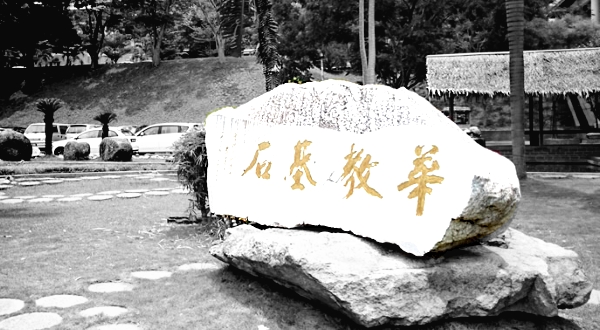
By TAY TIAN YAN
Sin Chew Daily
The December 28 Chinese Organisations Joint Congress is like the arrow on the bowstring. It has nowhere to go but to be released into the air.
Some say why the trouble? Isn’t it much better getting the impasse resolved through a dialogue?
It will be perfect if the education ministry and the PH government are willing to negotiate with the local Chinese community, and I am very sure the representatives of Dong Zong, Dong Jiao Zong and other Chinese organisations are more than willing to sit down and talk.
Nevertheless, after the release of the Jawi calligraphy guidelines, the education ministry as well as the PH government have remained largely immune to public frustration.
Dong Jiao Zong has given its reasons for opposing to the new policy; Hua Zong president has put forth ten major questions, while 95% of Chinese primary schools in the country have voiced their objection. Unfortunately, all these dissident voices, along with the queries and appeals, have all dissipated into thin air.
The ministry is completely indifferent, while the deputy minster is at best evasive. PH’s ethnic Chinese ministers do not seem to know that this thing exists, or they just pretend to be so.
When you are treated as transparent, how possible is it for the Chinese educational bodies to ever sit down and talk with the authorities?
Some say the congress is bound to trigger“very Malay” reactions from the Malay society, including calls for closing down Chinese primary schools.
The purpose of the congress organisers couldn’t have been more straightforward. This is going to be a consultative gathering to allow Chinese organisations to deliberate on the issue of teaching Jawi calligraphy at Chinese primary schools with the hope of striking an agreement and identifying the effective solutions.
They are not opposing to Jawi nor intending to confront the Malays. The congress will be a peaceful and rational forum held in total compliance with the country’s laws. As the congress is held indoors, there will be no open protests or demonstrations.
If some other organisations have adopted a more aggressive approach to counter the congress, such as the May 13 threat by Islamic Student Coalition (Gamis), the police should deal with these people because they are the ones disrupting our social harmony.
There is no way a peaceful assembly should submit itself to violent threats.
Anwar Ibrahim, PAS and ABIM have all urged the organisers to cancel the congress to make way for dialogue, which is very good. But the thing is, Dong Jiao Zong has since the very beginning engaged in countless of dialogues, including with Malay organisations.
While it is utterly important to get the understanding of the Malay society, Dong Zong cannot keep conducting dialogues now, as the Jawi lesson is about to be started very soon.
The most definitive and effective dialogue partners should be prime minister Tun Dr Mahathir Mohamad, education minister Maszlee Malik, education director-general Amin Senin, as well as cabinet minsters in the PH government.
Sadly none of these people who have the powers in their hands is willing to talk.
A new academic year is about to begin very soon, when this whole thing will become irreversible. Dong Jiao Zong and the local Chinese community cannot afford to remain silent any more or wait infinitely.
Lu Xun once wrote: “I now understand the reason a dying nation has to stay mum. Silence, oh silence! If you do not erupt in silence, then you will perish in it.”
With our rights being progressively eroded in this apathetic world of ours, silence is no longer the best way of responding to a crisis; it will only lead us down the road of destruction.
While the December 28 congress may be helpless in reversing the government’s decision, at least it allows us to voice up and not to keep mum and resign ourselves.
This is the peaceful and rational way for people to exert pressure on the authorities in a democratic society, the right approach to rectify an administrative flaw.






0812ed4e-cac1-4f1d-9f26-d46cc751cd59ee29c23c-ceda-469d-b5af-f7e5a42a24c8.jpg)
1ee30310-67e3-4804-92f2-dde0c6e26894bd4a1f69-8679-4521-b5d5-7a1f0df06493.jpg)
a0621fc9-47cd-48f3-addb-82c6890cff6c411967ae-86f6-48bc-8075-707e31398849.jpg)
d7b1c578-d473-465f-b1f6-be11b88220fbbb5e3d26-0a3a-4930-addd-355a5ea6d48a.jpeg)
a698d713-9324-4c81-adcd-2b8280fd61013552d167-c034-4978-a923-8159a2c79294.jpg)
79a03b9f-ccd3-4ed9-9155-83b62ddaf491215efd35-dba2-488e-b370-b8c7c2fe2b1e.png)